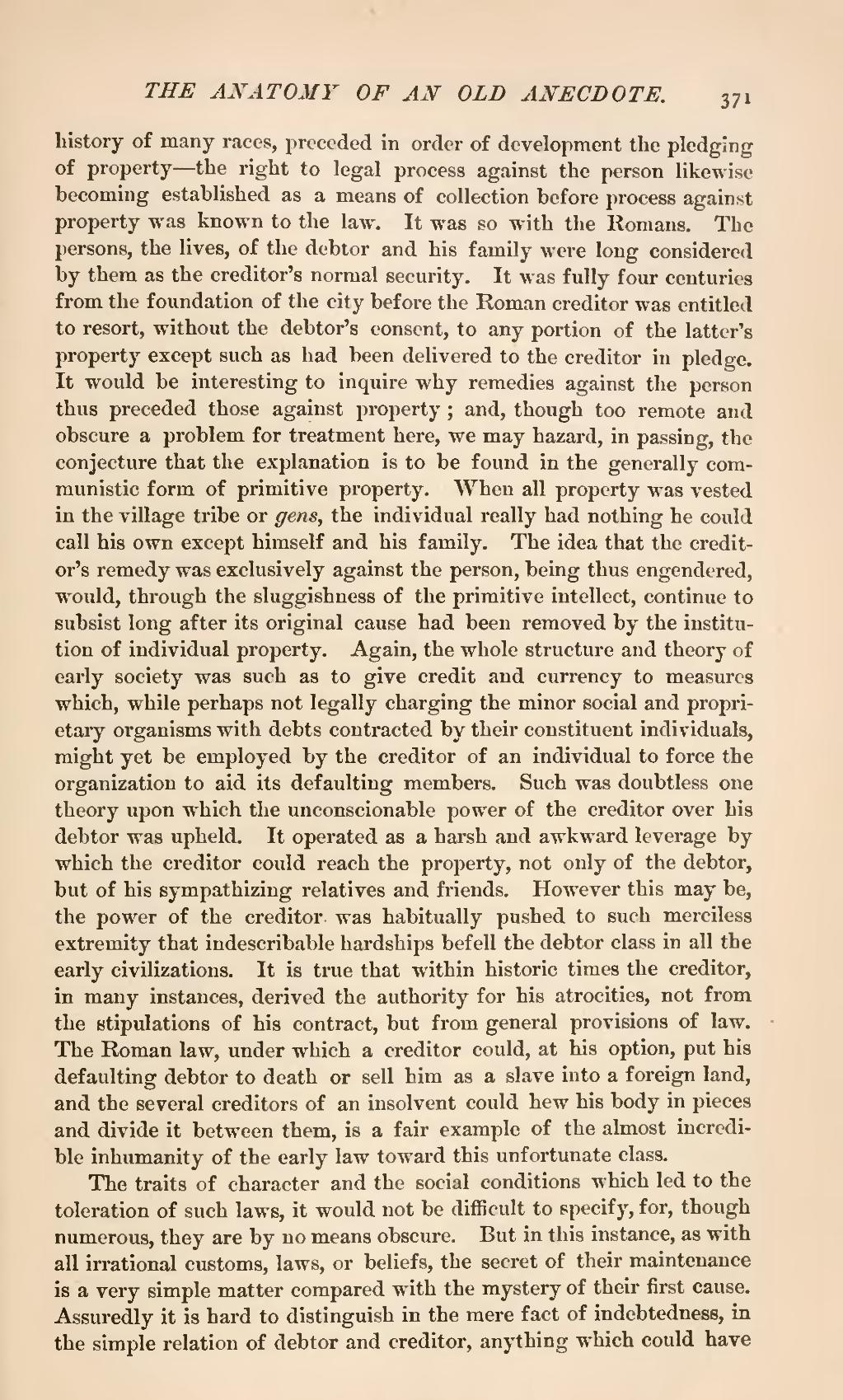history of many races, preceded in order of development the pledging of property—the right to legal process against the person likewise becoming established as a means of collection before process against property was known to the law. It was so with the Romans. The persons, the lives, of the debtor and his family were long considered by them as the creditor's normal security. It was fully four centuries from the foundation of the city before the Roman creditor was entitled to resort, without the debtor's consent, to any portion of the latter's property except such as had been delivered to the creditor in pledge. It would be interesting to inquire why remedies against the person thus preceded those against property; and, though too remote and obscure a problem for treatment here, we may hazard, in passing, the conjecture that the explanation is to be found in the generally communistic form of primitive property. When all property was vested in the village tribe or gens, the individual really had nothing he could call his own except himself and his family. The idea that the creditor's remedy was exclusively against the person, being thus engendered, would, through the sluggishness of the primitive intellect, continue to subsist long after its original cause had been removed by the institution of individual property. Again, the whole structure and theory of early society was such as to give credit and currency to measures which, while perhaps not legally charging the minor social and proprietary organisms with debts contracted by their constituent individuals, might yet be employed by the creditor of an individual to force the organization to aid its defaulting members. Such was doubtless one theory upon which the unconscionable power of the creditor over his debtor was upheld. It operated as a harsh and awkward leverage by which the creditor could reach the property, not only of the debtor, but of his sympathizing relatives and friends. However this may be, the power of the creditor was habitually pushed to such merciless extremity that indescribable hardships befell the debtor class in all the early civilizations. It is true that within historic times the creditor, in many instances, derived the authority for his atrocities, not from the stipulations of his contract, but from general provisions of law. The Roman law, under which a creditor could, at his option, put his defaulting debtor to death or sell him as a slave into a foreign land, and the several creditors of an insolvent could hew his body in pieces and divide it between them, is a fair example of the almost incredible inhumanity of the early law toward this unfortunate class.
The traits of character and the social conditions which led to the toleration of such laws, it would not be difficult to specify, for, though numerous, they are by no means obscure. But in this instance, as with all irrational customs, laws, or beliefs, the secret of their maintenance is a very simple matter compared with the mystery of their first cause. Assuredly it is hard to distinguish in the mere fact of indebtedness, in the simple relation of debtor and creditor, anything which could have

